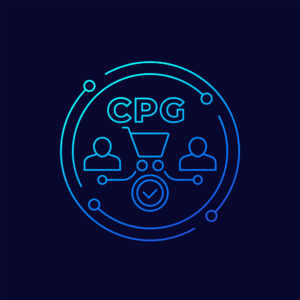It started in 1995 when two Mikes, former college roommates at St. Joseph’s University, Philadelphia, came up with an idea. Mike McNulty was working in trade publishing, specializing in the water and wastewater sector. Mike Hagan was at Merrill Lynch. After many ups and downs, the company they founded became three, with one of them later acquired by BravoSolution and ultimately becoming part of JAGGAER. Here’s their amazing story.
“One day in 1995 someone walked into my office, opened a laptop and showed me this thing called the Internet. After that meeting I picked up the phone and called Mike Hagan and said, ‘I’ve just seen the future of trade publishing’. I think we should start our own company,” Mike McNulty recalled. “Things we now take for granted – like clicking on a product of interest and being instantly connected with the manufacturer – were a revelation at the time,” he added.
“I was running a technology project for Merrill Lynch in the mutual funds division, but I liked Mike’s idea, so we set up WaterOnline in August of that year,” Hagan added. The proposition was to create an online buyers’ guide, an electronic Yellow Pages for engineers and consultants in the industry. Anyone offering pumps, valves and other equipment used by water utilities and municipalities could list their products and services on the site, and WaterOnline generated revenue by selling them a virtual storefront on the site for $6,000, which was more or less what you could expect to pay for a full color, full page advertisement in a leading trade publication.
58 Varieties of Online
This first project created a template that could easily be rolled out to communities in other vertical markets: first environmental industries such as pollution control and solid waste, then chemical engineering and so on. “Basically, we took the name of the industry and added the ‘online’ and we had a new product. We were the trailblazers in a lot of sleepy B2B sectors, and this meant we could raise a lot of investment and scale up,” Hagan said.
“Advertisers loved us, because we generated leads far more effectively than the traditional industry print media,” McNulty added.
In 1997 Mark Walsh who, among other things, had been VP of all things internet at AOL, saw the potential of this concept and became CEO. He later joked that Solidwaste.com was a site that “no one visits twice by mistake”, but the people who did visit rapidly became fans as they found not only advertising but also news of lucrative projects. Walsh explained at the time: “As we grow the number of VerticalNet communities, we will grow their value to members, which in turn will increase their value to advertisers and sponsors. This multi-phased growth will result in increasingly higher revenues for VerticalNet.”
Within three and a half years McNulty and Hagan had scaled the business to cover 58 industries. “I guess you could say that back then we were an inch deep and a mile wide, with so many verticals, while SciQuest was an inch wide and a mile deep in the lab supplies and scientific research market,” Hagan quipped. This breadth enabled the company to go public in 1999 and acquire more companies using our stock as currency. The company had 1,300 advertisers, each of them paying $6,000 per year.
In 1999, on the first day of trading after its initial public offering, VerticalNet’s shares increased in value by 180%, valuing the company at $1.6 billion, despite only having $3.6 million in quarterly revenue.
The Three Companies
“That year Mike and I owned 28% of the company, which made each of us worth $60 million on paper,” Hagan said. Then in January 2000, VerticalNet received a $100 million investment from Microsoft and Satya Nadella, who at the time was running Microsoft’s small business unit and is now CEO, joined the board. “That was a true seal of approval,” Hagan added.
It was also the high point for the opening chapters of the VerticalNet story. In 2000 the dot-com bubble burst, and the market capitalization of the company fell from a peak of $10.89 billion on March 10, 2000 to $3.89 billion on May 4, 2000.
But much more success was to follow. Under Mike Hagan’s leadership as CEO, VerticalNet split into three focus areas, which eventually became three separate companies:
VerticalNet Markets remained true to the original concept of a B2B media services company serving all the industry-specific communities and online marketplaces. “We sold this division to Corry Publishing, now Jameson Publishing, for a cash up-front payment of $2.35 million and a four-year performance-based earn-out of $6.5 million, together with the assumption of certain liabilities. Trading under the name VertNet, it still employs hundreds of people in the Philadelphia area, including the very first VerticalNet employee – my sister-in-law, who joined as a secretary in 1996!”
NECX became a leading electronics exchange. Joseph Galli, who preceded Hagan as CEO of VerticalNet and is currently CEO with Techtronic Industries made several acquisitions in high tech brokerage – spot markets in components such as memory and processor chips. Hagan led the sale of this part of the business to Converge, a hi-tech consortium that included the likes of Compaq and Hewlett-Packard, for $60 million in cash, a 19.9% equity stake in the exchange and a seat on the board. It is now a thriving business focused on creating customized, end-to-end supply chain solutions for electronics components sourcing and inventory management, and part of the Arrow group of companies.
VerticalNet Solutions, which focused on direct procurement applications to industry alliances and was eventually acquired by BravoSolution (subsequently JAGGAER). “Before then we acquired Atlas Commerce in return for 14.3 million shares of VerticalNet common stock and $3.5 million of cash and we relocated to Malvern, Pennsylvania. We also acquired a company in Israel and although the revenues were low, we were on our way to becoming a global force in procurement,” said Hagan. “Our revenues were low, but we were attracting investors because the B2B media services industry offered the prospect of getting access to buyer communities in all those verticals,” he added.
Although these companies went on to become massively successful in their own right, as a single public company it made a confusing and unattractive proposition for investors. By selling off VerticalNet Markets and NECX, VerticalNet got the cash needed to focus on developing as a software business.
“I was no software entrepreneur, however,” Hagan confessed. “So, we hired Kevin McKay, the former CEO of SAP America, to join the board and help us on our way. Kevin had a passionate desire to lead the business and became CEO and I stepped up to the position of Chairman. The transformation was then just about complete.”
The BravoSolution Buyout
More tough times lay ahead following the recession of 2002, which brought with it market inertia – most procurement organizations were not yet ready to make major investments in software or give B2B middlemen a piece of the action. Nate Lentz, now Managing Partner at Osage Venture Partners, took over as CEO and led the transformation of VerticalNet from an online operator of web portals to a software as a service solution (SaaS) provider, while navigating the company through its financial challenges. “We had a great set of technologies and a talented leadership team but poor cashflow and EBITDA and it was tough trying to raise capital and therefore difficult to invest in growing the company,” Hagan recalled. “In short, being public worked to our disadvantage coming up against bigger players in competitive sales situations.”
Consequently, a buyout made good business sense and BravoSolution, an Italian company looking to build a presence in the United States, acquired VerticalNet for $15.2 million early in 2008.
Kristian O’Meara, who was at the time a Director of VerticalNet and is now SVP, Strategic Initiatives at JAGGAER, brings the story up to date: “This acquisition by BravoSolution allowed our employees to continue to pursue their vision to become the best in source-to-contract software, a vision that has been extended to source-to-pay through the mergers that created JAGGAER.”
Kristian is now looking forward to the next 25 years of driving innovations that will transform procurement and commerce – just as the heritage companies that are today rolled into the amazing company called JAGGAER did in their time!
Mike Hagan is now Managing Partner with Hawk Capital Partners and Mike McNulty is Chairman of Veteran Opportunity Partners LLC.




